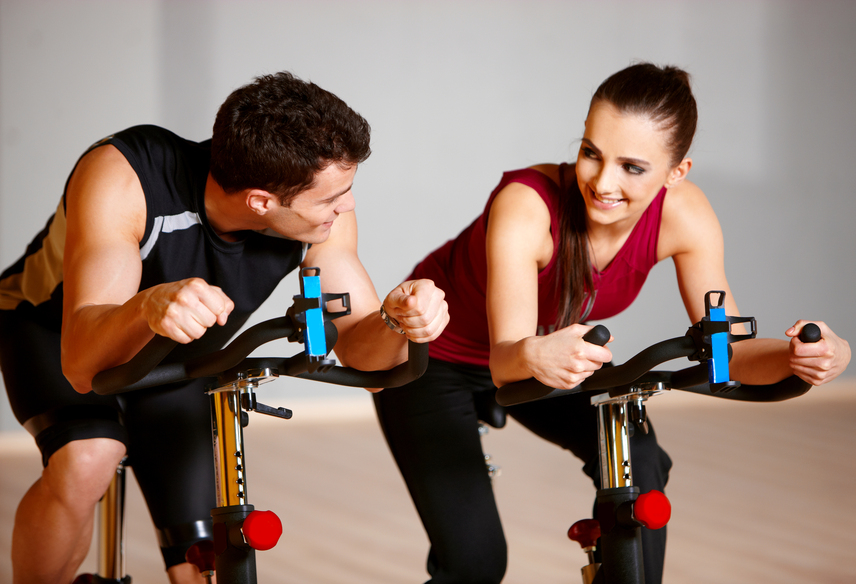Exercise causes feelings of excitement and enthusiasm
By Liz Lockhart
The impact of physical activity is much more than being physically fit. Exercise brings many benefits to mental health as well as physical health.
 Researchers from Penn State have now found that people who are more physically active report higher levels of enthusiasm and excitement than people who are less active. They also found that people are also more likely to feel excitement and enthusiasm on days when they are more physically active than usual.
Researchers from Penn State have now found that people who are more physically active report higher levels of enthusiasm and excitement than people who are less active. They also found that people are also more likely to feel excitement and enthusiasm on days when they are more physically active than usual.
David Conroy, professor of kinesiology said ‘You don’t have to be the fittest person who is exercising every day to receive the feel-good benefits of exercise. It’s a matter of taking it one day at a time, of trying to get your activity in, and then there’s this feel-good reward afterwards.’
Conroy also said that it can be hard for people to commit to an exercise programme as they tend to set long term rather than short term goals.
‘When people set New Year’s resolutions, they set them up to include the entire year, but that can be really overwhelming. Taking it one day at a time and savouring that feel-good effect at the end of the day might be one step to break it down and get those daily rewards for activity. Doing this could help people to be a little more encouraged to stay active and keep up the programme they started,’ Conroy said.
In the study, researchers invited 190 university students to keep daily records of their lived experiences. This included free-time physical activity and sleep quantity and quality, and also their mental health. Mental health included perceived stress and feeling states. The participants were told to record only the physical activity that occurred for a minimum of 15 minutes and to record whether the physical activity was vigorous, moderate or mild.
The daily records were returned to the researchers at the end of every day for a total of eight days. Amanda Hyde, kinesiology graduate student said that the team separated the participants’ feeling states into four categories:
- Pleasant-activated feelings exemplified by excitement and enthusiasm
- Pleasant-deactivated feelings exemplified by satisfaction and relaxation
- Unpleasant- activated feelings exemplified by anxiety and anger
- Unpleasant- deactivated feelings exemplified by depression and sadness
Hyde said ‘We found that people who are more physically active have more pleasant-activated feelings than people who are less active, and we also found that people have more pleasant-activated feelings on days when they are more physically active than usual.’ Hyde also noted that the team was able to eliminate alternative explanations for the pleasant-activated feelings, quality of sleep for example.
‘Our results suggest that not only are there chronic benefits of physical activity, but there are discrete benefits as well. Doing more exercise than you typically do can give you a burst of pleasant-activated feelings. So today, if you want a boost, go do some moderate-to-vigorous intensity exercise,’ Hyde added.
Many previous studies have looked only at pleasant or unpleasant feelings and paid less attention to the idea of activation, Conroy said. ‘Knowing that moderate and vigorous physical activity generates a pleasant-activated feeling rather than just a pleasant feeling, might help to explain why physical activity is so much more effective for treating depression rather than anxiety,’ he explained.
‘People dealing with anxious symptoms don’t need an increase in activation. If anything, they might want to bring it down some. In the future, we plan to look more closely at the effects of physical activity on mental health symptoms,’ Conroy concluded.





